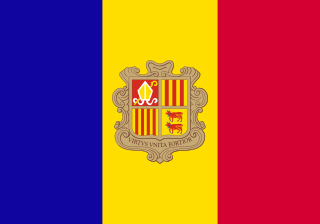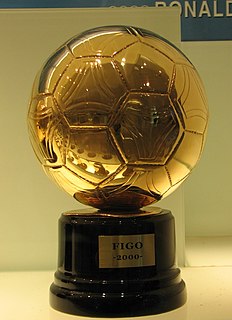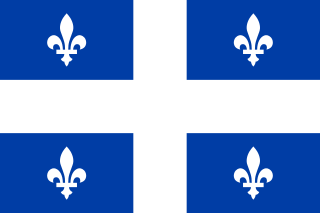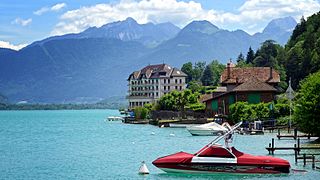| |||||
| Decades: | |||||
|---|---|---|---|---|---|
| See also: | Other events of 1623 History of France • Timeline • Years | ||||
Events from the year 1623 in France .
| |||||
| Decades: | |||||
|---|---|---|---|---|---|
| See also: | Other events of 1623 History of France • Timeline • Years | ||||
Events from the year 1623 in France .

Andorra, officially the Principality of Andorra, is a sovereign landlocked microstate on the Iberian Peninsula, in the eastern Pyrenees, bordered by France to the north and Spain to the south. Believed to have been created by Charlemagne, Andorra was ruled by the count of Urgell until 988, when it was transferred to the Roman Catholic Diocese of Urgell. The present principality was formed by a charter in 1278. It is headed by two co-princes: the bishop of Urgell in Catalonia, Spain and the president of France. Its capital and largest city is Andorra la Vella.

Monaco, officially the Principality of Monaco, is a sovereign city-state and microstate on the French Riviera a few kilometres west of the Italian region of Liguria, in Western Europe, on the Mediterranean Sea. It is bordered by France to the north, east and west. The principality is home to 38,682 residents, of whom 9,486 are Monégasque nationals; it is widely recognised as one of the most expensive and wealthiest places in the world. The official language of the principality is French. In addition, Monégasque, Italian and English are spoken and understood by many residents.

New Caledonia is a sui generis collectivity of overseas France in the southwest Pacific Ocean, south of Vanuatu, about 1,210 km (750 mi) east of Australia, and 17,000 km (11,000 mi) from Metropolitan France. The archipelago, part of the Melanesia subregion, includes the main island of Grande Terre, the Loyalty Islands, the Chesterfield Islands, the Belep archipelago, the Isle of Pines, and a few remote islets. The Chesterfield Islands are in the Coral Sea. French people, especially locals, call Grande Terre "Le Caillou".

Paris is the capital and most populous city of France, with an estimated population of 2,165,423 residents in 2019 in an area of more than 105 km², making it the 34th most densely populated city in the world in 2020. Since the 17th century, Paris has been one of the world's major centres of finance, diplomacy, commerce, fashion, gastronomy, and science. For its leading role in the arts and sciences, as well as its very early system of street lighting, in the 19th century it became known as "the City of Light". Like London, prior to the Second World War, it was also sometimes called the capital of the world.

The House of Bourbon is a European dynasty of French origin, a branch of the Capetian dynasty, the royal House of France. Bourbon kings first ruled France and Navarre in the 16th century. By the 18th century, members of the Spanish Bourbon dynasty held thrones in Spain, Naples, Sicily, and Parma. Spain and Luxembourg have monarchs of the House of Bourbon.

Ivory Coast, also known as Côte d'Ivoire, officially the Republic of Côte d'Ivoire, is a country on the southern coast of West Africa. Its capital is Yamoussoukro, in the centre of the country, while its largest city and economic centre is the port city of Abidjan. It borders Guinea to the northwest, Liberia to the west, Mali to the northwest, Burkina Faso to the northeast, Ghana to the east, and the Gulf of Guinea to the south. Its official language is French, and indigenous languages are also widely used, including Bété, Baoulé, Dioula, Dan, Anyin, and Cebaara Senufo. In total, there are around 78 different languages spoken in Ivory Coast. The country has a religiously diverse population, including numerous followers of Christianity, Islam, and indigenous faiths.

Paris Saint-Germain Football Club, commonly referred to as Paris Saint-Germain, Paris, Paris SG or simply PSG is a professional football club based in Paris, France. They compete in Ligue 1, the top division of French football. As France's most successful club, they have won over 40 official honours, including ten league titles and one major European trophy. Their home ground is the Parc des Princes.

The Ballon d'Or is an annual football award presented by French news magazine France Football since 1956. Between 2010 and 2015, in an agreement with FIFA, the award was temporarily merged with the FIFA World Player of the Year and known as the FIFA Ballon d'Or. That partnership ended in 2016, and the award reverted to the Ballon d'Or, while FIFA also reverted to its own separate annual award The Best FIFA Men's Player. The recipients of the joint FIFA Ballon d'Or are considered as winners by both award organisations.

France, officially the French Republic, is a transcontinental country predominantly located in Western Europe and spanning overseas regions and territories in the Americas and the Atlantic, Pacific and Indian Oceans. Its metropolitan area extends from the Rhine to the Atlantic Ocean and from the Mediterranean Sea to the English Channel and the North Sea; overseas territories include French Guiana in South America, Saint Pierre and Miquelon in the North Atlantic, the French West Indies, and many islands in Oceania and the Indian Ocean. Due to its several coastal territories, France has the largest exclusive economic zone in the world. France borders Belgium, Luxembourg, Germany, Switzerland, Monaco, Italy, Andorra, and Spain in continental Europe, as well as the Netherlands, Suriname, and Brazil in the Americas via its overseas territories in French Guiana and Saint Martin. Its eighteen integral regions span a combined area of 643,801 km2 (248,573 sq mi) and close to 68 million people. France is a unitary semi-presidential republic with its capital in Paris, the country's largest city and main cultural and commercial centre; other major urban areas include Marseille, Lyon, Toulouse, Lille, Bordeaux, and Nice.

Quebec is one of the thirteen provinces and territories of Canada. It is the largest province by area and the second-largest by population. Much of the population lives in urban areas along the St. Lawrence River, between the most populous city, Montreal, and the provincial capital, Quebec City. Quebec is the home of the Québécois nation. Located in Central Canada, the province shares land borders with Ontario to the west, Newfoundland and Labrador to the northeast, New Brunswick to the southeast, and a coastal border with Nunavut; in the south it borders Maine, New Hampshire, Vermont, and New York in the United States.

French Guiana is an overseas department/region and single territorial collectivity of France on the northern Atlantic coast of South America in the Guianas. It borders Brazil to the east and south and Suriname to the west.

Abidjan is the economic capital of the Ivory Coast. According to the 2021 census, Abidjan's population was 6.3 million, which is 21.5 percent of the overall population of the country, and this also makes it the sixth most populous city proper in Africa, after Lagos, Cairo, Kinshasa, Dar es Salaam, and Johannesburg. A cultural crossroads of West Africa, Abidjan is characterised by a high level of industrialisation and urbanisation. It also is one of the most populous French-speaking cities in Africa.

Overseas France consists of 13 French-administered territories outside Europe, mostly the remains of the French colonial empire that chose to remain a part of the French state under various statuses after decolonization. They are part of the European Union. This collective name is used in everyday life in France but is not an administrative designation in its own right. Instead, the five overseas regions have exactly the same administrative status as the metropolitan regions; the five overseas collectivities are semi-autonomous; and New Caledonia is an autonomous territory. Overseas France includes island territories in the Atlantic, Pacific and Indian Oceans, French Guiana on the South American continent, and several peri-Antarctic islands as well as a claim in Antarctica. Excluding the district of Adélie Land, where French sovereignty is effective de jure by French law, but where the French exclusive claim on this part of Antarctica is frozen by the Antarctic Treaty, overseas France covers a land area of 120,396 km2 (46,485 sq mi) and accounts for 18.0% of the French Republic's land territory. Its exclusive economic zone (EEZ) of 9,825,538 km2 (3,793,661 sq mi) accounts for 96.7% of the EEZ of the French Republic.

Marseille is the prefecture of the French department of Bouches-du-Rhône and capital of the Provence-Alpes-Côte d'Azur region. Situated in the camargue region of southern France, it is located on the coast of the Gulf of Lion, part of the Mediterranean Sea, near the mouth of the Rhône river. Its inhabitants are called Marseillais.

Emmanuel Jean-Michel Frédéric Macron is a French politician who has served as the president of France, and therefore the co-prince of Andorra, since 2017. Prior to his presidency, he served as Minister of Economics, Industry and Digital Affairs between 2014 and 2016.

Auvergne-Rhône-Alpes is a region in southeast-central France created by the 2014 territorial reform of French regions; it resulted from the merger of Auvergne and Rhône-Alpes. The new region came into effect on 1 January 2016, after the regional elections in December 2015.

Hauts-de-France is the northernmost region of France, created by the territorial reform of French regions in 2014, from a merger of Nord-Pas-de-Calais and Picardy. Its prefecture is Lille. The new region came into existence on 1 January 2016, after regional elections in December 2015. The Conseil d'État approved Hauts-de-France as the name of the region on 28 September 2016, effective the following 30 September.

The COVID-19 pandemic in France has resulted in 35,828,595 confirmed cases of COVID-19 and 155,491 deaths.

The COVID-19 pandemic in Ivory Coast is part of the worldwide pandemic of coronavirus disease 2019 caused by severe acute respiratory syndrome coronavirus 2. The virus was confirmed to have reached Ivory Coast in March 2020.

The ongoing COVID-19 pandemic was confirmed to have reached the French overseas department and region of Mayotte on 10 March 2020. On 31 March, the first person died of COVID-19. In late April, the virus was out of control, and actively circulating on the island. On 16 August, Mayotte has been green listed.